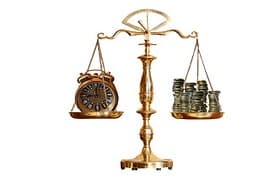What are Damages?

Baltimore PI Lawyers Tip. Quite simply “Damages” are monetary compensation for personal injury.
Baltimore PI Lawyers Tip: The damages one seeks to recover must have been a foreseeable consequence to a reasonable person in the defendant’s shoes at the time of the accident.

Car accidents in Baltimore leave more than dents in vehicles—they disrupt lives. For victims, the legal concept of damages is the tool that transforms injury and loss into measurable compensation. Damages are not abstract legal words; they are the mechanism by which a person hurt in a collision is restored, as best as possible, to the position they held before the crash.
Economic damages represent the financial costs a victim faces after an accident. These are concrete, documented losses that can be proven with bills, invoices, or employment records. In Baltimore, common categories include:
Medical expenses: Emergency care, surgeries, physical therapy, prescriptions, and ongoing treatment.
Lost wages: Income lost during recovery, as well as reduced earning capacity if injuries limit future work.
Property damage: Vehicle repairs or replacement, and reimbursement for other personal property destroyed in the crash.
These damages are vital because they ensure a victim does not shoulder costs created by another driver’s negligence.
While economic damages cover the financial side, non-economic damages account for the intangible harms of an accident. Maryland law recognizes that the pain of a back injury, the fear caused by a traumatic event, or the loss of enjoyment in daily life cannot be ignored. Non-economic damages often include:
Physical pain and suffering
Emotional distress
Loss of companionship or consortium
Reduced quality of life
These damages recognize the deeply personal, human cost of a crash in Baltimore. They are harder to quantify, but no less real than a medical bill.
Why Damages Matter. Damages exist because justice demands accountability. A victim of a Baltimore car accident should not be left to rebuild life alone. By translating loss into financial terms, the law aims to balance the scales. Damages:
Provide resources for medical recovery
Replace lost income and stability
Recognize human suffering and dignity
Hold negligent drivers responsible
In summary, damages are the lifeline that allows accident victims to move forward. They restore, repair, and reaffirm the principle that when harm is done, accountability follows.



